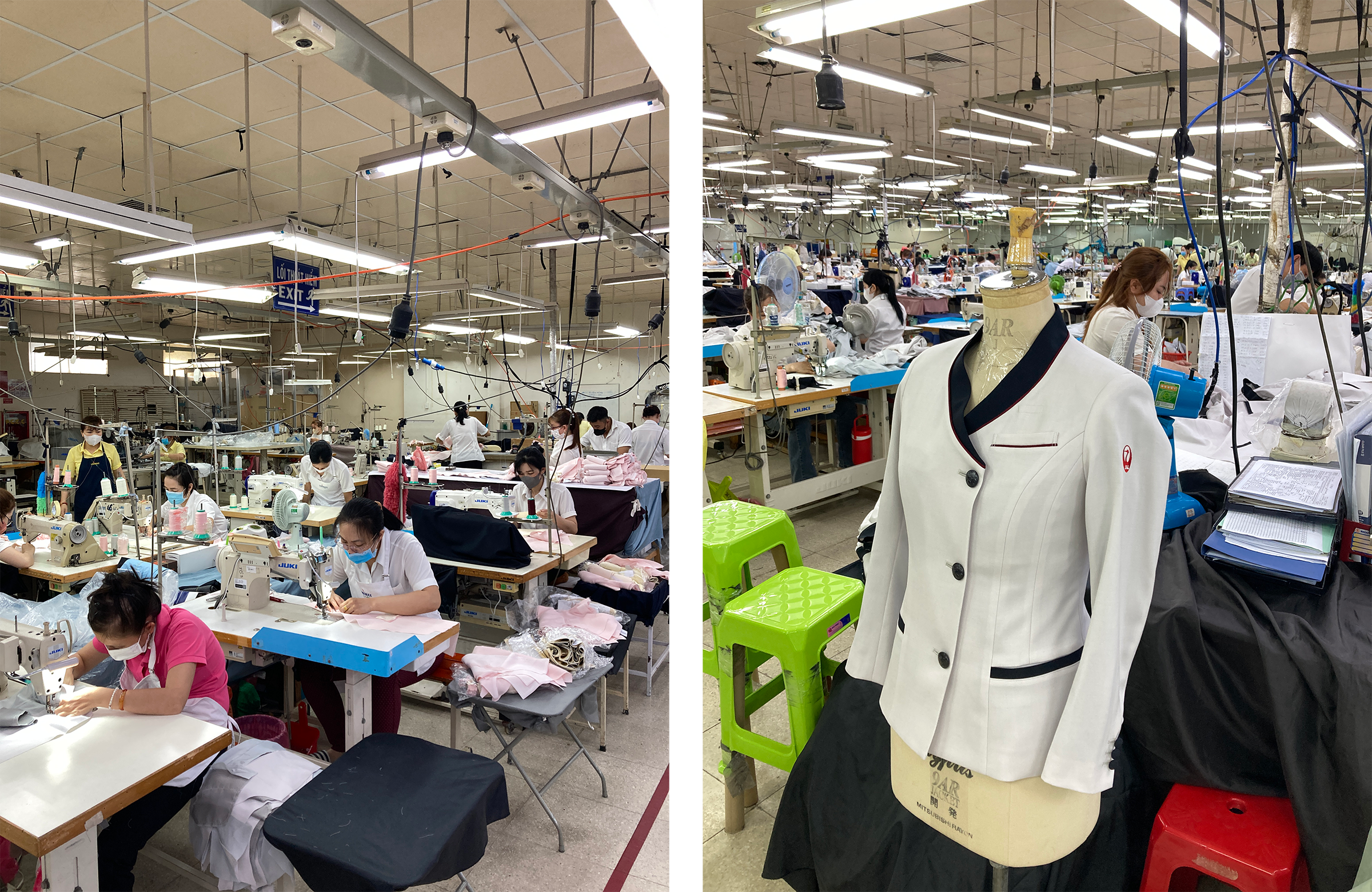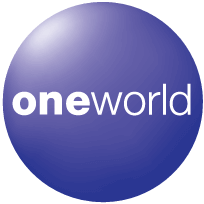Responsible Procurement
Basic Concept
The JAL Group will conduct procurement in a fair and open manner in order to build the trust of stakeholders and corporate citizenship activities toward the realization of a sustainable society in the course of our air transportation business and other various businesses. We will promote responsible procurement not only from the perspectives of quality, price, and delivery time, but also with the aim of coexistence and co-prosperity with our business partners, and with an environmentally friendly approach to sustainability, including global environmental conservation, respect for human rights, and appropriate labor practices.
JAL Group Supplier Code of Conduct
In order to promote responsible procurement activities that take sustainability into consideration, we have established the JAL Group Supplier Code of Conduct, which we ask our suppliers to understand and comply with.
In formulating this Code , we have paid close attention to the ten principles of the United Nations Global Compact in the four areas of human rights, labor, environment, and anti-corruption, as well as international agreements and norms in various sustainability-related fields, and this Code of Conduct have incorporated the following information into the Code of Conduct.
Items in the JAL Group Supplier Code of Conduct
- 1.Quality assurance
- 2.Human rights and labor
- 3.Safety and Sanitation of Work Environment
- 4.Global environment
- 5.Business Management
- 6.Expansion to Suppliers
- 7.Contribution to Regions and Society
- 8.Establishment of Internal Promotion Systems
Our company supports and has publicly declared the "Declaration of Partnership Building," led by the Cabinet Office and the Small and Medium Enterprise Agency. We actively engage in exchanging opinions and identifying issues with our business partners through regular face-to-face meetings, emails, and online conferences. We are committed to proactively reviewing trading and commercial practices that may hinder the building of partnerships with our business partners.

Supply Chain ESG Program
The JAL Group's air transportation business and other businesses are supported by the supply chains of a wide variety of suppliers. We will operate a supply chain ESG program to promote responsible procurement activities that take sustainability into consideration throughout the supply chain, and to identify and address significant risks and impacts from an ESG perspective, in order to realize a sound supply chain.
Program Contents
(1) Goal setting and progress review and risk management at Board of Directors
Goals are set at the Board of Directors, the Sustainability Promotion Council and the Risk Management Council chaired by the President and group CEO (Representative Director), where progress is monitored and risks are managed to promote the program.
For details, please refer to the "Promotion Organization" below.
(2) Compliance with the JAL Group Supplier Code of Conduct
We present the "JAL Group Supplier Code of Conduct" to our suppliers and request their understanding and compliance.
(3) Conducting Supplier assessment
In order to identify and address significant risks and impacts from an ESG perspective, we evaluate and assess ESG risks of our suppliers and the products they handle. As a result, we provide advice and support to our suppliers when improvements are necessary. If a business partner cannot achieve the minimum ESG requirements within a set timeframe and no improvement is observed, we will review the relationship, which may include excluding the transaction (contract).
As an alternative approach to assessment, we prioritize awarding business partners who handle certified products verified to comply with ESG criteria as suppliers with high ESG performance. For example, we use wood and paper products certified under internationally recognized certifications that consider forest resources, as well as products certified by MSC*1 and ASC*2.
*1 An international certification system by the Marine Stewardship Council for sustainable fisheries that are appropriately managed in an environmentally friendly manner.
*2 An international certification system by the Aquaculture Stewardship Council for aquaculture operations that do not burden the environment and that take the local community into consideration.
(4) Education and dissemination of the supply chain ESG program to internal procurement staff
We regularly educate and inform company’s buyers and internal procurement staff on ESG perspectives, such as the significance of responsible procurement activities, the Supply Chain ESG Program, as well as new laws, guidelines, and the status of improvement in on-site assessment.
(5) Review of our own procurement activities for sound purchasing
Once a year, we conduct a questionnaire survey and review of our procurement divisions on purchasing practices towards suppliers to check whether our purchasing activities are preventing suppliers from complying with the "JAL Group Supplier Code of Conduct".
Major Initiatives
Under the Supply Chain ESG Program, we conduct assessment and support initiatives for suppliers according to the size of the ESG risk of the suppliers and the products they handle.
Supplier assessment
(1) For all suppliers
We present the "JAL Group Supplier Code of Conduct" to all suppliers and request their understanding and compliance.
(2) For significant suppliers
We select significant suppliers that place importance on the magnitude of ESG (environment, human rights, labor, anti-corruption, etc.) risks in the supply chain and the degree of dependence on the JAL Group, and conduct the following desk assessment, on-site confirmations, and support.
In the ESG risk selection process, we take into account country-specific risks such as concerns about child labor in the countries where the factories producing the final products are located, industry-specific risks including issues related to technical intern trainees, migrant workers, and long working hours, as well as product-specific risks such as forced labor associated with apparel items.
In addition, we have selected suppliers that handle fuel-efficient aircraft procurement and SAF, which are essential in the execution of our ESG strategy, as significant suppliers, and we communicate with them on a daily basis to ensure procurement.
For significant suppliers, we conduct the following assessment to confirm their compliance status.
Desk assessment
We ask our significant suppliers to respond to Sedex*3 and our own self-assessment questionnaires, and we are confirming their compliance status through their responses to the questionnaires.
*3 A non-profit organization established in the U.K. in 2004 that provides a platform for managing and sharing corporate ethics information with the aim of realizing responsible business practices in the supply chain.
Conducting supplier on-site assessment (2nd party assessment)
In addition to desk assessment, we conduct onsite assessment with a particular focus on human rights risks. We hold workshops with external experts, and through the knowledge gained from these workshops, we have established and are operating an onsite confirmation methodology. As a result of the self-assessment questionnaires, our procurement department personnel visit suppliers on site to confirm the actual place, documents, and workers' interviews, etc., when we consider significant suppliers that need to be confirmed from the viewpoint of human rights. When a finding of concern is confirmed and an improvement is necessary, we request the supplier to submit an improvement plan and provide support for the improvement to prevent or mitigate the negative impact on human rights.
[Cases of Improvement]
- Case 1: Multilingualization of safety notices for multinational foreign workers
- Case 2 : Training for all employees in respect for human rights

Multilingualized postings
Independent 3rd party assessment (On-site audits)
As part of our assessment, we conduct on-site audits by an independent third-party organization, and if ESG risks are considered to be particularly high, we target the implementation of SMETA audits*4. We request our suppliers who handle uniforms to conduct such audits at the stage of selecting new sourcing partners.

*4 SMETA audit (Sedex Members Ethical Trade Audit) is a social audit designed to improve corporate ethics in the global supply chain and is the most widely used in the world.
Supplier Development
In order to build a sound supply chain, we not only request our suppliers to comply with the "JAL Group Supplier Code of Conduct," but we also believe that it is essential for our suppliers themselves to grow. To this end, we are implementing the following initiatives.
Spreading awareness of the Supply Chain ESG Program
We inform all suppliers of this program on our website. We also strive to further improve understanding of the ESG/SDGs by promoting the Supply Chain ESG Program and human rights guidelines to significant suppliers through on-site visits and online meetings.
Details of Dissemination to significant suppliers
- Supply Chain ESG Program
- JAL Supplier Hotline (complaint handling desk)
- UN Guiding Principles on Business and Human Rights
- Ministry of Economy, Trade and Industry's "Guidelines for Respecting Human Rights in Responsible Supply Chains, etc.
- Examples of human rights violations, etc.
Providing benchmarks to suppliers
To help our suppliers achieve better ESG performance, we provide benchmarks, including comparisons with other companies in the same industry, and introduce examples of initiatives at other companies. Secondary suppliers are also asked to provide feedback in the same manner from their important primary suppliers.
[Examples of benchmarks]

Technical support for suppliers
If the results of the self-assessment questionnaire or on-site verification do not meet our company's required standards and improvements are needed, we request our business partners to submit an "Improvement Plan." At the same time, we provide support by offering information such as the reasons for the issues and the necessary actions to achieve improvement.
Additionally, we collaborate with significant primary suppliers to support our business partners' skill development by providing self-assessment questionnaires needed to verify the soundness of secondary suppliers and sharing information related to ESG initiatives.
JAL Supplier Hotline
In addition to supplier assessment, the JAL Group has established the "JAL Supplier Hotline" to receive consultations and reports from suppliers and their employees, and has put in place a system that allows employees of suppliers to report consultations and reports directly to the JAL Group. The hotline is available in Japanese and English. For details, please refer to the "JAL Supplier Hotline" below.
Actual Results
KPI of Supplier Screening
KPIs for Supplier Assessment and Development
Coverage and progress of our supplier assessment program
Coverage and progress of suppliers with corrective action plans
Coverage and progress of suppliers in capacity building programs
* Disclosure items in the results of initiatives are disclosed in reference to GRI Standard 414-2, "Negative Social Impacts in the Supply Chain and Measures Taken.

